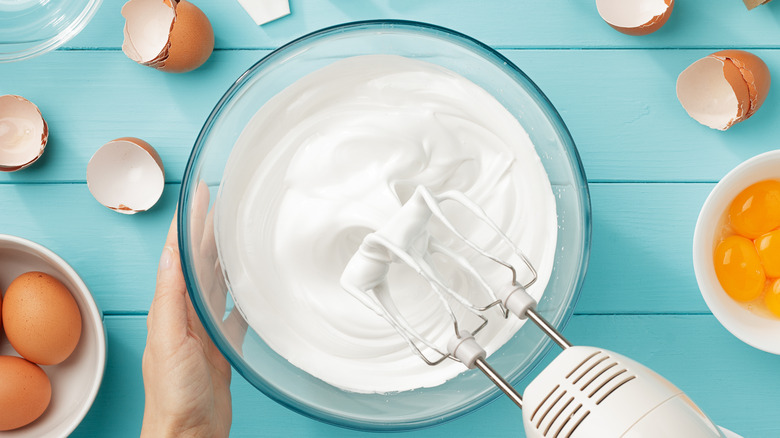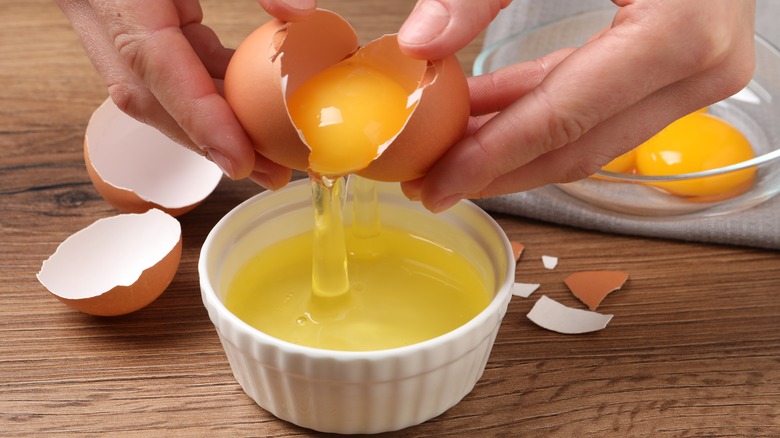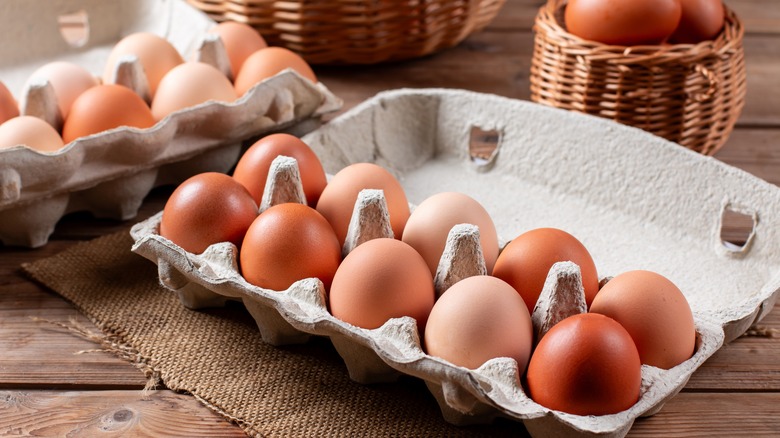The Egg White Mistake That Ruined Your Meringue
Meringue is an example of the fascinating intersection between culinary art and science. A lemon meringue pie is a show-stopping treat when piled high with whipped egg whites and then delicately toasted to perfection. However, assembling this beautiful dessert can be quite a challenge.
If the eggs are under whipped, they are too soft and lack structure. If they are over whipped, they start to look lumpy and dry. Sometimes, it's not the duration of the whipping that ruins your meringue; it could actually be due to the temperature of the egg whites. Room temperature egg whites are ideal for whipping; if they're too cold, it will take longer, and there's a higher likelihood that your meringue won't achieve the desired impressive volume.
Whenever you are using a bunch of egg whites for a recipe like meringue, there is an equal number of egg yolks left over. There's no need to worry that they will go to waste, because there is a clever way to save egg yolks when your recipe only calls for whites.
Temperature is key for perfect meringue
Before making meringue, you must begin by separating the eggs. If you find this task challenging, there's a handy kitchen tool that easily separates egg yolks from whites. It is actually easier to accomplish this task while they are still chilled, straight from the refrigerator, since there are benefits to separating cold versus room temperature eggs. From there, however, it's important to allow the whites to come to room temperature (68 to 72 degrees Fahrenheit) for 20 to 30 minutes. To save time, separate the eggs right away when you start a recipe, then keep the whites on the countertop as you assemble the tools and all the ingredients you need.
Room temperature egg whites will whip up faster and achieve a larger volume than cold whites. This is because, as the egg whites come to room temperature, some of their moisture is released. Too much moisture can make your meringue too soft or sticky to assemble properly.
When to use room temperature egg whites vs whole eggs
Besides meringue, other recipes also call for egg whites to be at room temperature before incorporating them into the dish. Essentially, this is necessary for any recipe where the eggs will be whisked into a stable foam to provide structure to the final product. Angel food cake and delicate soufflés are examples of recipes that seem light as air, yet reach lofty heights because of whipped egg whites.
Sometimes, whole eggs also need to be at room temperature. This is usually the case with recipes that have a high fat content, such as cheesecakes or cookie dough. These recipes typically require softened butter or cream cheese, and cold eggs could harden these fats, thus preventing the ingredients from incorporating properly. Should you ever forget to take whole eggs out of the refrigerator, don't despair. Simply place the whole eggs in a bowl of warm water for a few minutes, and that should do the trick.



